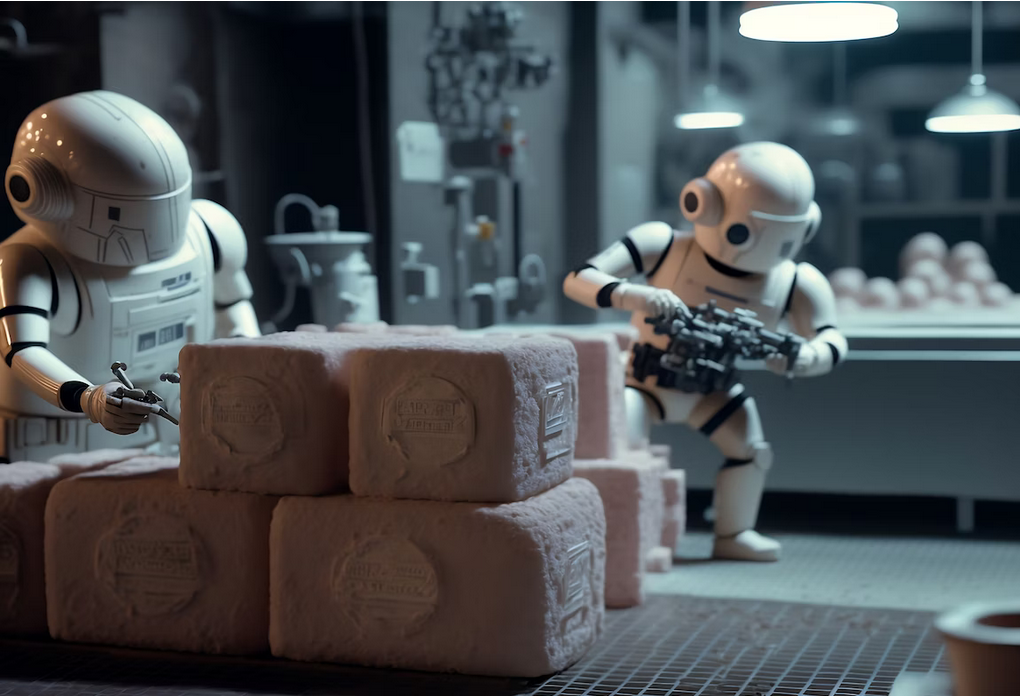Estimated reading time: 4 minutes
Early in my writing career, I had a debate with an editor after I told him my strategy to avoid clichés. It’s a simple trick: If I’ve heard the phrase before, I take it out. He considered the idea then rendered his judgment.
“I agree mostly,” he said. “But I don’t think you should limit yourself.”
We left it at that. Decades ago. I’ve since come over to his view a little. Sometimes a cliché is the right move. When someone is grieving the death of a loved one, the standard, “I’m sorry for your loss” is a fine move. That’s not the time to get creative and display your vocabulary wizardry.
I concede, editor-whose-name-I-forgot. Clichés have their place. That place is when creativity is irrelevant and maybe even harmful.
Most of the time, clichés should be avoided like … the plague …. no… like a truck with a Confederate flag sticker. Instead of a metaphor that’s been used since before … you were born… no… since stone met tablet, make a new one. Like I did here, twice.
Instead of “as fast as lightning” come up with something. Like “as fast as a day off.”
Not great, not genius, but they’re new and make the same point.
Why prioritize newness? Because it’s called creative writing for a reason. Plus, you never know what will catch on.
I once wrote that a certain future event was “as inevitable as the sunset.” Imagine my delight when I heard it used in a news broadcast. Had they seen my writing, or was it independent invention? Who knows?
What does this have to do with generative AI?
Because I found a new way to use AI and autocomplete and auto-suggest. I refer to those ghostly phrases that appear in computer apps to guess what you’re typing. They are fine and helpful for completing words. But I despise them when they suggest phrases or entire sentences. Because they’re making the suggestion based on what is most commonly used.
For a quick refresher, the generative AI mechanism is very simple. It chooses the word most likely to come next. (1)
To paraphrase author William Deresiewicz, AI makes a high-probability choice, human creativity is a low-probability risky choice. Sometimes it fails but sometimes hits big.(2)
In other words, AI lacks the risk factor. AI lacks the go-for-it, come-what-may, devil-may-care (clichés) energy. It lacks that, I’m-mortal-but-not-dead-yet boldness (new) that we humans can hurl forth.
For those of you worried about AI taking your creativity, it won’t – as long as you’re bolder than it. But how do we know what AI is “thinking?” Easy. It tells us.
When you’re creative writing, leave the auto-phrase or auto-sentence complete feature on. When the app suggests a phrase, you know what to avoid.
That’s a tiny alert notification that it’s time to be bold – go for it – make something up. So instead of same old, “The runner was as fast as lightning.” you might come up with …
- The runner was as fast as me changing the channel when ice skating comes on.
- The runner was as fast as a lie on social media.
- The runner was as fast as credit card debt at the casino.
- The runner was as fast as a weekend with no chores.
So there you go. I made up those examples above. Right now on the spot, no editing or second chances. I wanted to show you a live example. None of them great, but they are – as far as I know – new and unique, also known as creative.
Because of their newness they are not in any generative AI language models. Because of their uniqueness, they are unlikely to be suggested in future language models that scrape this essay. And should they ever return in ghostly auto-complete form, I’ll ignore them anyway and make up something new. Just as I promised that editor from the past.
Is AI going to replace creativity? Only if we let it by being uncreative. If we use it as a sidekick, it can help us by telling us exactly what NOT to do.
Sources:
- What is Chat GPT Doing and Why Does it Work? by Stephen Wolfram 2023
- William Deresiewicz on The Unspeakable Podcast episode: “Is Art Boring Or Is It Just Us? William Deresiewicz Returns To The Pod” June 12, 2023


Comments
2 responses to “How To Use Generative AI to be More Human”
[…] How To Use Generative AI to be More Human […]
[…] How To Use Generative AI to be More Human […]